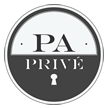“Detail oriented” and “pays attention to detail” are requirements you see on nearly every job posting. This makes sense, since being observant about details means you can avoid costly mistakes. The modern workplace is full of distractions. Don’t let your big-picture thinking stop you from caring about the small stuff. Paying attention to the details could give you a competitive advantage.
Check out our PA Privé careers page for personal assistant jobs and London PA jobs and more.
Develop these 13 simple strategies for ensuring greater attention to detail:
Pay Attention
Really listening means abandoning the multi-tasking for a moment.
Consistent attention to the small details produces excellence.
Start Small
Set aside 5 minutes at a time to pay attention to details. Small efforts accumulate when you do them regularly. Besides, it’s easier to motivate yourself to pay attention to details for five minutes than to face a gargantuan job, knowing you have to examine it thoroughly and carefully.
Create a system for organization that works for you.
Whether you respond best to making lists, creating spreadsheets or developing workflow charts, develop a plan that you will consistently use. Make sure every element of your work role fits into your organizational system so that nothing is overlooked or forgotten.
A study in the journal Science found that the human brain can handle two complicated tasks simultaneously. Add a third, though, and the brain can’t keep up. People lose track of one of the original tasks and begin making errors, the study found.
Write things down.
Many of us depend way too much on our memory. With so much going on in our lives, it’s surprising that we even remember to brush our teeth, let alone the details of a conversation that we had with a client a week and a half ago. Start to make a habit of taking notes. This prevents you from forgetting things and making errors, and it also better enables you to give the client exactly what they want. Additionally, it frees up your mind so that you can remember important things, like where did your son put his favourite book?
Learn to love checklists
While making lists shows initiative, completing lists shows follow-through. Always keep your schedule accessible and update your progress in real time. This allows for small celebrations as items go from “to do” to “done” status. Consider using a productivity app such as iCal and Evernote, which allows users to create and update to-do lists and share them across all their devices.
Map it out
In the morning, map out your day, including errands, and refer to your “road map” throughout the day. It helps to visualize your plan.
Remember People’s Names
Brain research shows that there’s greater brain activation when we hear our own name in relation to the name of others. Our name is indeed the sweetest sound to our ears. Remembering that it is Helen, not Ellen, or Stephen, not Steven is a small detail that shows you care. Paying attention to your customers’ name is another small way to set your business apart.
Ultimately, the key to quality in every aspect of our lives is doing little things correctly — all the time, every time, — so that each action produces a quality result.
Create the right environment
Make your environment work for you. If noisy colleagues are rattling your concentration, request a quieter workspace to boost your concentration.
Prioritize
Manage your time and prioritize your job duties. List your job responsibilities from the most important or critical functions to responsibilities that are less important. Allocate sufficient time to each of your responsibilities.
Don’t multitask
Multitasking spreads your attention out over a variety of items instead of focusing it onto one specific item, which means that you end up unable to give full attention to each item and you won’t be able to get all the details in order.
Ask for feedback
Ask your manager for more precise examples of things you can do to improve your work product. Have him delineate the exact mistakes you’re making so that there is no confusion.
Don’t Rush
When a due date is looming, it is hard not to rush as you work. Rushing and cutting corners often leads to making mistakes. This may sound like a conflicting statement, but the most important time to practice slowing down is when you are under a time deadline. Mistakes can occur and actually take longer to correct than working slowly and increasing your focus.
Turn Off Distractions
Avoid distractions when you want to concentrate on your work. Switch off phones, do not check e-mail and choose a quiet room to minimize your chances of being distracted by interruptions and external sounds. If you cannot work in a quiet or secluded area, wear headphones and play soft classical background music to cancel distracting external sounds. Position your chair and desk to face a wall instead of the window or doorway to avoid passing distractions.
Learning how to pay attention to detail is an ongoing exercise, even for detail-oriented people! Being detail-oriented is a skill that can be learned if you practice keying in on little things like names, dates, places, times and numbers. In today’s highly competitive workplaces it’s often the little things that set you apart.






